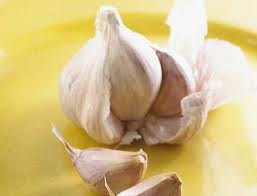What is Psoriasis?
PSORIASIS is a chronic skin disorder that may affect the skin, joints and even the eyes. The infected person may suffer from red patches, which are called as plaques, with silvery scales on the skin. These silvery flakes can be peeled off easily. The person also suffers from inflammation. These patches can be found on any part of the skin. The most affected areas are knees, scalp and elbows. Psoriasis can affect any part of the body!
TYPES OF PSORIASIS:
As per the scientific studies, psoriasis is of five types.
>The patches which affect the back of the elbow and on the knees are called as plaques. Such type of psoriasis is called as PLAQUE PSORIASIS. It is the most common type of psoriasis.
>Often the patients suffer from small red or pink spots all over the body mostly the chest and the back. These spots are a type of psoriasis and are called as GUTTATE PSORIASIS.
>The moist areas of the body, like underarms, genitals or the area under the breast are usually affected with red patches. It may be worsened by sweat or itching. This type of psoriasis is called as FLEXURAL PSORIASIS.
>when the red patches are filled with pus and cause inflammation, then it is called as PUSTULAR PSORIASIS. It usually occurs on the palms and sole of the feet.
>Patches affecting the hair margins with scaling and flakes are called as SCALP PSORIASIS. It mainly affects the scalp. Rare but serious condition of psoriasis is ERYTHRODERMA. In this type large areas of skin become hot and dry.
CAUSES OF PSORIASIS:
>One of the main causes of outbreak of psoriasis is failure of immune system. The immune system consists of T-cell which guards the body against infection. But in psoriasis the T-cells target the other immune responses leading to destruction of skin cells. The other major reason for psoriasis is heredity. A large number of families are affected by psoriasis, due to a certain identified genes. Psoriasis also occurs when a person is suffering from throat infection. Often the patch grows where the skin has been scratched or injured. High consumption of alcohol and certain drugs may also cause psoriasis.
DIAGNOSING PSORIASIS:
Mostly psoriasis is diagnosed by an appearance of a rash on the skin. Along with rashes, if the person suffers from joint inflammation then he is prescribed a blood test. And in some rare cases, small samples of skin is taken and sent for observation. Psoriasis is not contagious and it can affect all age groups and both the sexes equally.
TREATMENT OF PSORIASIS:
There is no cure for psoriasis. Mostly psoriasis gets better on its own, but sometimes it needs to be treated.Sunshine is one of the best treatments for psoriasis. As the skin gets dry during psoriasis, moisturizing creams are used instead of soap. Vitamin D is said to be very effective for the patients suffering from psoriasis.Mild steroids and creams also help in this case. No prevention is yet found, as one cannot prevent the skin from drying!!
Get Eczema Cured within 14 days -Money Back Guarantee Click Here!
Sunday, February 4, 2007
Psoriasis - Prevention and Cure
Labels: eczema, Psoriasis, Skin allergy, skin rashes
Search This Blog
Disclaimer
Disclaimer:-
Information provided on this site is for educational purposes. The information in not given as medical advice nor is it intended to propose or offers to propose a cure for any disease or condition. Before starting any medical treatment, please consult a qualified physician.
Information provided on this site is for educational purposes. The information in not given as medical advice nor is it intended to propose or offers to propose a cure for any disease or condition. Before starting any medical treatment, please consult a qualified physician.



1 Comment:
Hi,
Really a good information about the psoriasis.It's a very helpful and useful too.I found one of the website that is also have a information about psoriasis and video http://video.google.com/videoplay?docid=-2752721325628390227
Post a Comment